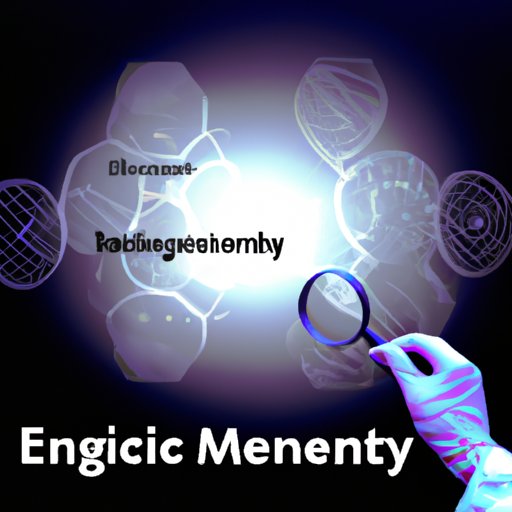Introduction
Medicine is often thought of as an exact science; however, there is a great deal of debate surrounding this assertion. In order to better understand the concept of “exact science” and its application to medicine, it is important to examine the role of uncertainty, evidence-based practice, genetics, and technology in medical practice. This article will explore these topics in detail in order to provide a comprehensive overview of the issue.
Examining the Role of Uncertainty in Medicine
The term “exact science” is defined as “the study of phenomena that can be accurately predicted and measured with precision.” While this definition may seem straightforward, it fails to take into account the inherent uncertainty that is present in medicine. For example, when making medical decisions, physicians must consider a number of different factors, including patient history, current symptoms, laboratory results, and more. As a result, it is impossible to guarantee that any given decision will lead to a successful outcome.
The impact of uncertainty on patient care is significant. Because physicians cannot predict the outcome of their decisions with certainty, they must rely on clinical judgment to make informed decisions. Clinical judgment involves weighing the available evidence and making a decision based on the best available information. However, even with the best information, there is still a degree of uncertainty that cannot be eliminated.
The Intersection of Evidence-Based Medicine and Clinical Judgment
Evidence-based medicine (EBM) is a practice model that emphasizes the use of scientific evidence to inform medical decisions. The goal of EBM is to ensure that medical decisions are based on the best available evidence. This evidence is evaluated using a rigorous process known as systematic review, which involves critically assessing the quality and quantity of published studies related to a particular topic.
Despite the importance of EBM, it is not enough to ensure accurate diagnoses and treatment plans. Clinical judgment also plays a critical role in medical decision-making. Clinicians must be able to interpret the evidence and apply it to individual cases in order to make informed decisions. By combining evidence-based medicine with clinical judgment, physicians can make decisions that are both informed and effective.

Exploring the Impact of Genetics on Medical Practice
In recent years, advances in genetic technology have had a profound impact on medical practice. Genetic information can help physicians better understand the underlying causes of disease and tailor treatments to individual patients. For example, genetic testing can identify mutations that increase an individual’s risk for certain conditions or reveal how an individual is likely to respond to certain medications.
Genetic information can also be used to inform preventive care. Knowing an individual’s genetic profile can enable physicians to recommend lifestyle changes or screenings that could reduce the risk of developing certain conditions. By leveraging genetic information, physicians can provide personalized care that is tailored to the individual’s unique needs.

Investigating the Impact of Technology on Medical Practice
Technology has also had a major impact on medical practice. Advances in imaging technology have enabled physicians to diagnose conditions with greater accuracy and precision. Additionally, new technologies have made it possible to detect diseases earlier, allowing for more effective treatment and improved outcomes.
Technology has also enabled physicians to monitor patients remotely. This has enabled physicians to keep track of a patient’s health without requiring them to come into the office. Remote monitoring also allows for more timely intervention if a patient’s condition begins to worsen.

Charting the Evolving Landscape of Medical Science
Medical science is constantly evolving. Advances in research and technology are enabling physicians to diagnose and treat conditions with greater accuracy and precision. Additionally, the incorporation of evidence-based medicine and clinical judgment has enabled physicians to make informed decisions that are tailored to the individual patient.
Genetics has also had a major influence on medical practice. By leveraging genetic information, physicians can provide personalized care that is tailored to the individual’s unique needs. Finally, advances in technology have enabled physicians to diagnose and monitor conditions with greater accuracy and precision.
Conclusion
In conclusion, it is clear that medicine is not an exact science. While advances in medical science have enabled physicians to diagnose and treat conditions with greater accuracy and precision, there is still a degree of uncertainty that cannot be eliminated. Additionally, the incorporation of evidence-based medicine and clinical judgment enables physicians to make informed decisions that are tailored to the individual patient. Finally, advances in technology have enabled physicians to diagnose and monitor conditions with greater accuracy and precision.
As medical science continues to evolve, it is important to remain cognizant of the role of uncertainty in medical decision-making. By recognizing the complexity of medical practice, we can ensure that decisions are informed by the best available evidence and tailored to the individual patient.
(Note: Is this article not meeting your expectations? Do you have knowledge or insights to share? Unlock new opportunities and expand your reach by joining our authors team. Click Registration to join us and share your expertise with our readers.)
